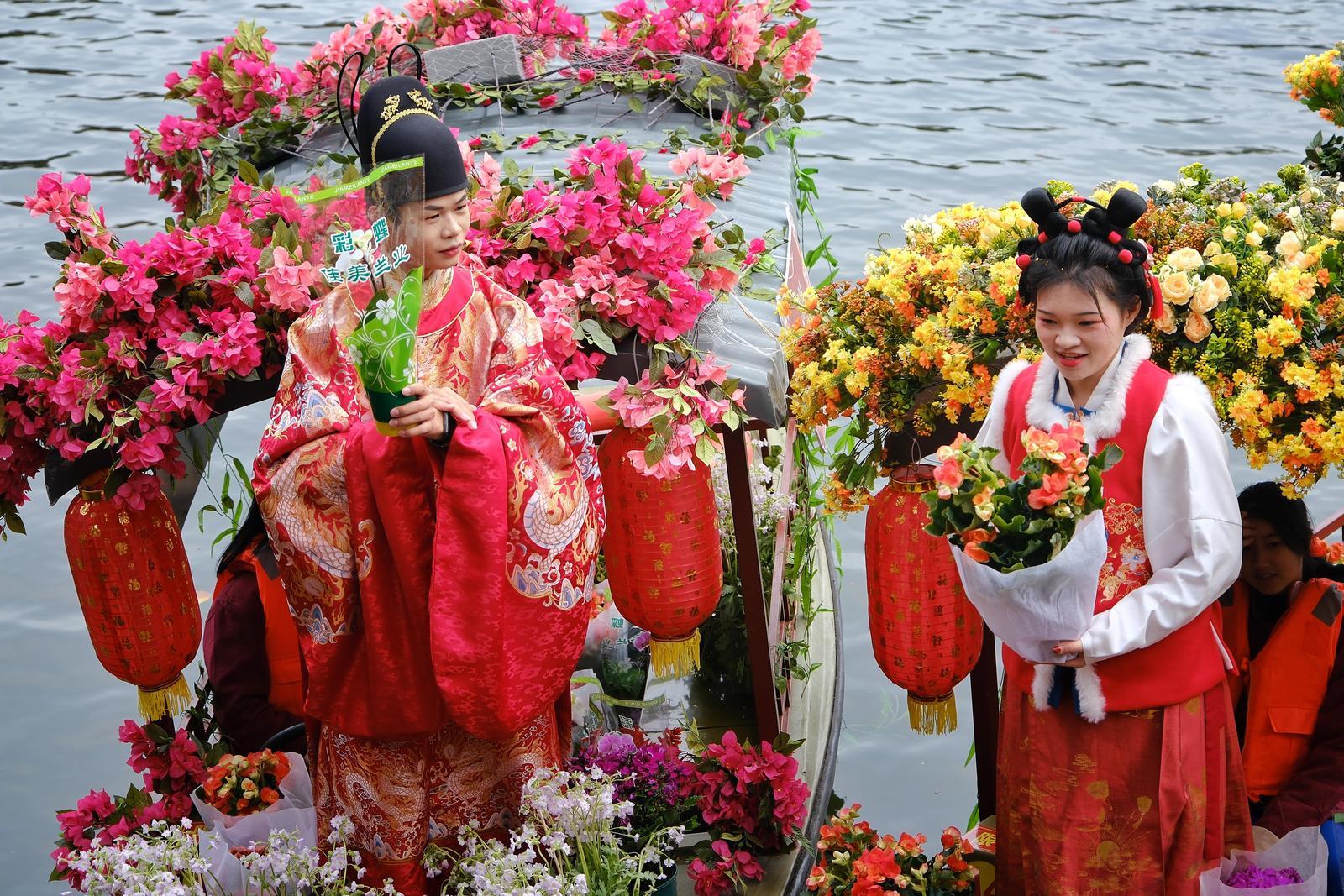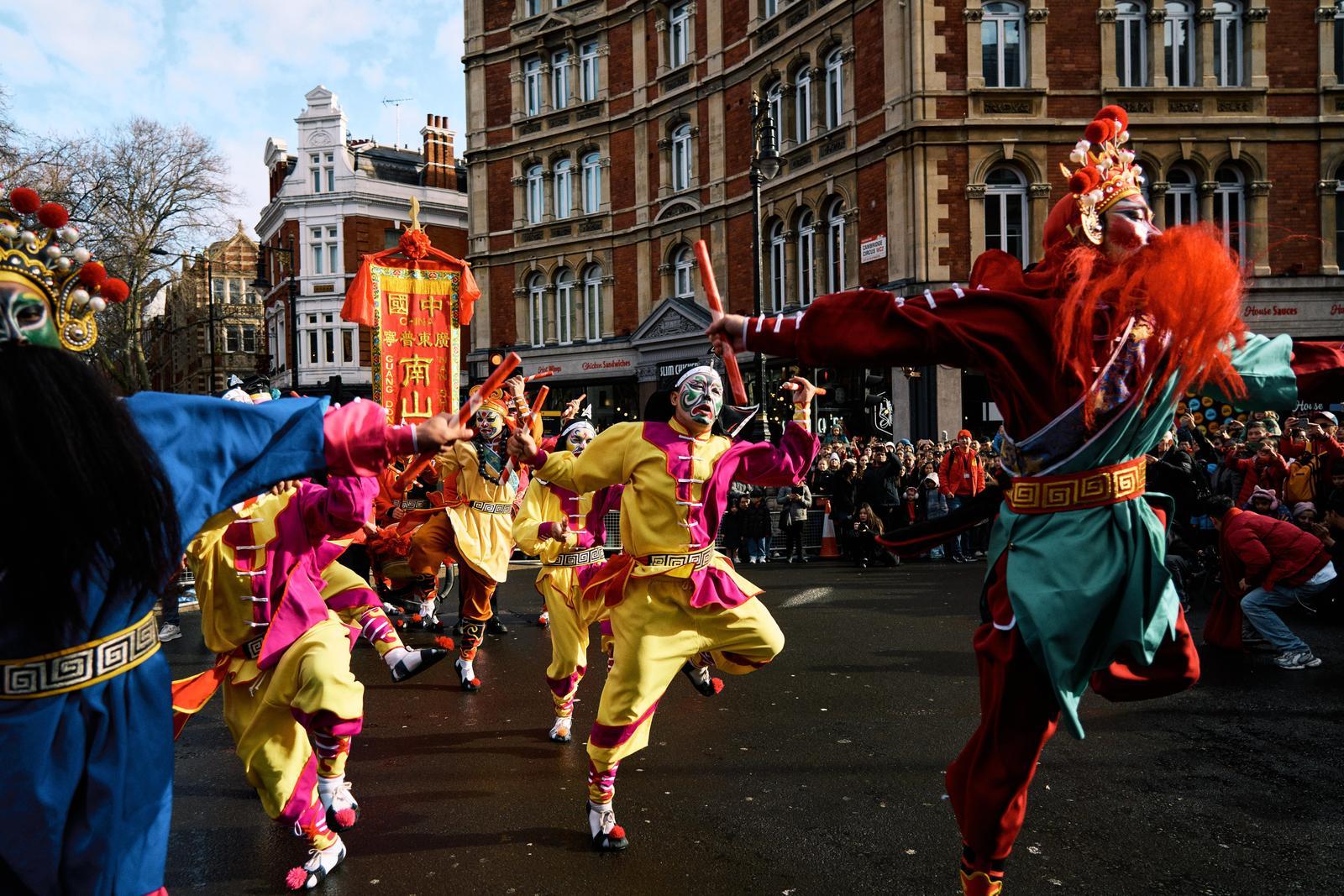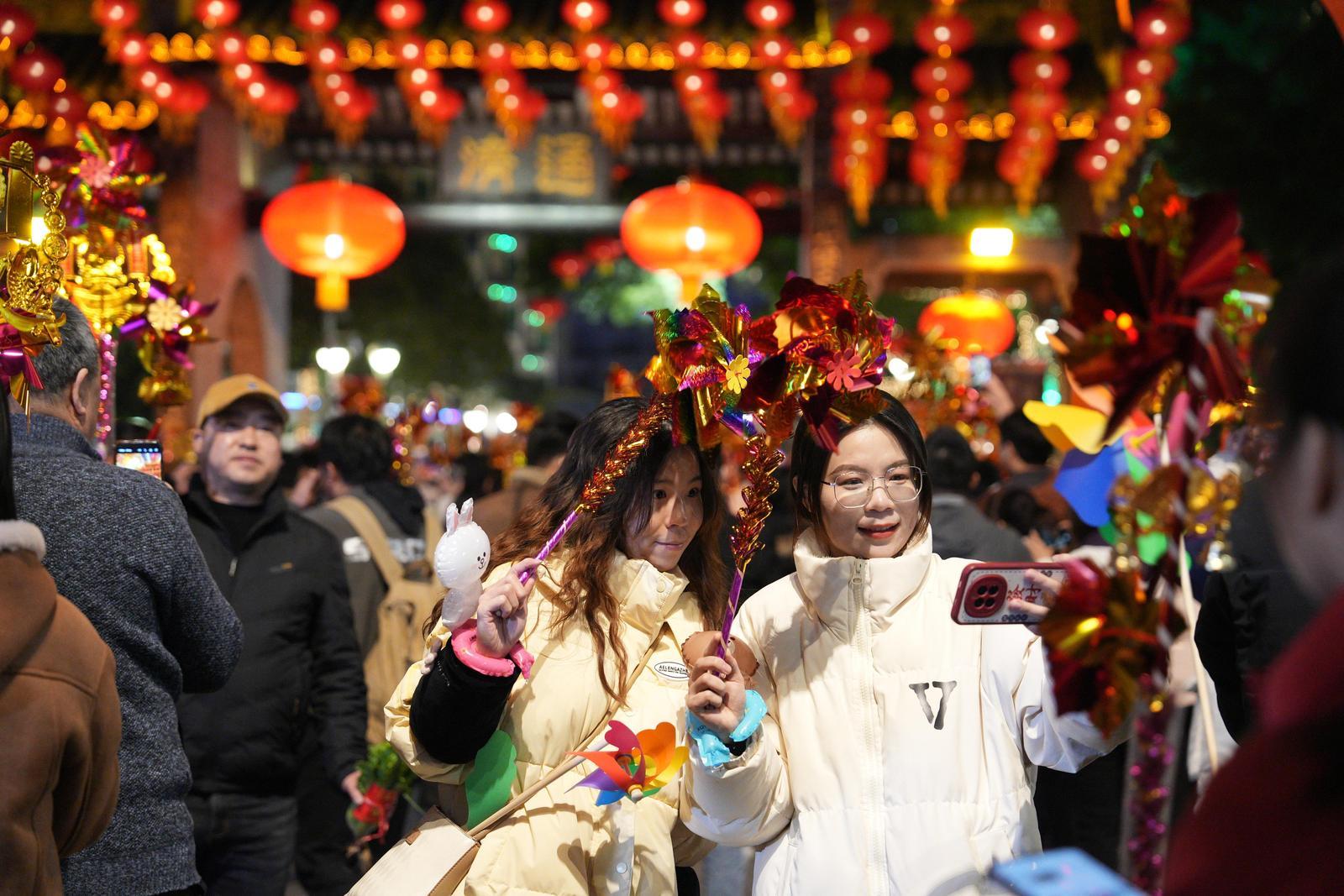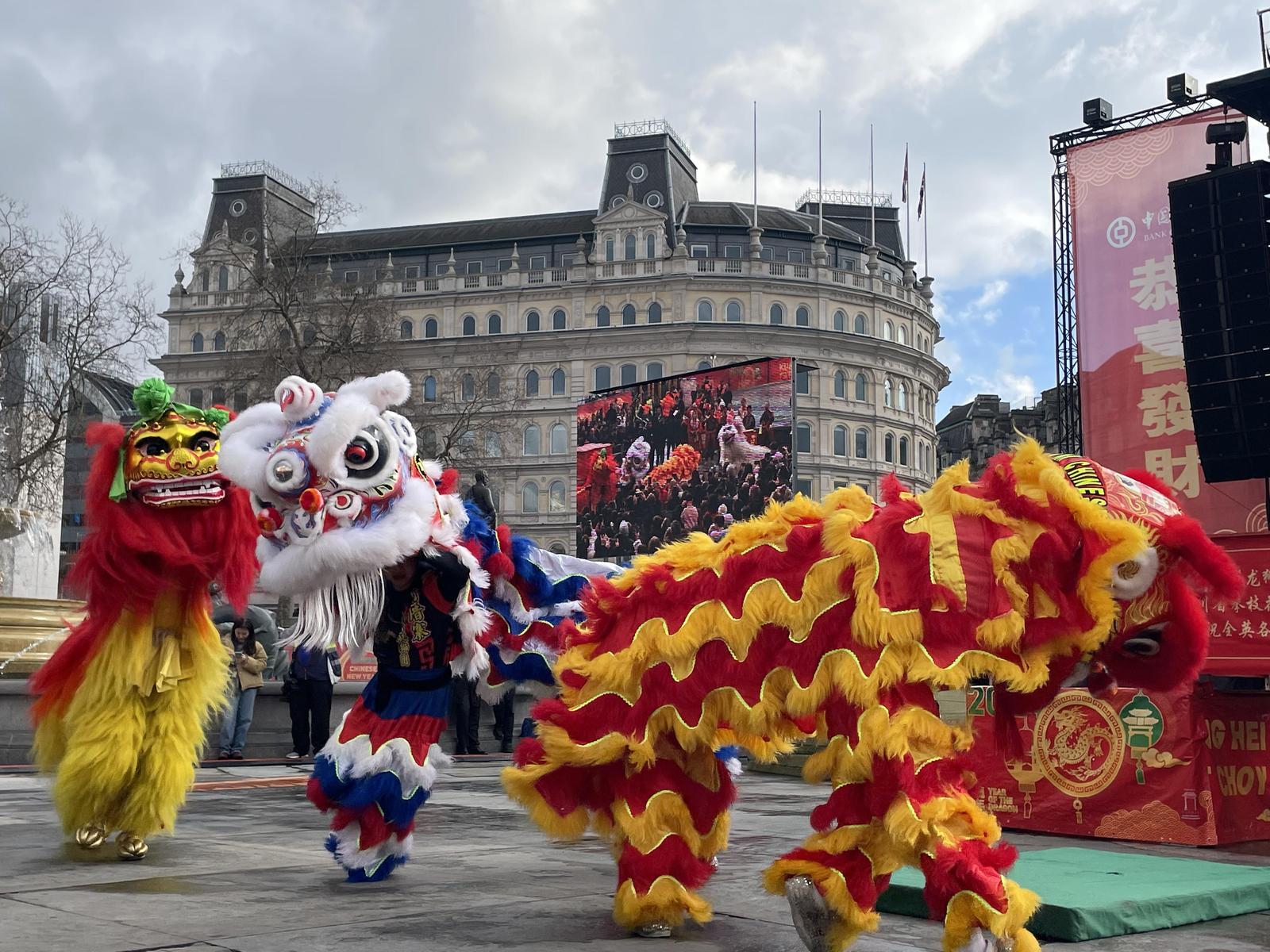
On December 4th, during the 19th session of the UNESCO Intergovernmental Committee for the Safeguarding of Intangible Cultural Heritage held in Asunción, Paraguay, "Spring Festival, social practices of the Chinese people in celebration of the traditional new year," submitted by China, was officially inscribed on the Representative List of the Intangible Cultural Heritage of Humanity. Recently, a Yangcheng Evening News reporter interviewed Zhu Gang, a researcher at the Institute of Ethnic Literature of the Chinese Academy of Social Sciences and Deputy Secretary-General of the Chinese Folklore Society, to discuss this significant achievement.
Reporter: What impacts will the successful inscription of the "Spring Festival" have on the upcoming 2025 celebrations?
Zhu: This inscription will foster a shift in public perception. People will begin to view these "ordinary" cultural practices as integral to cultural heritage. When participating in activities associated with the Spring Festival, they will become more conscious of their role in preserving cultural traditions. This heightened awareness is likely to revive traditional cultural practices, as individuals intentionally restore and "rediscover" customs from the past, such as wearing festive attire, participating in street celebrations, and engaging in other traditional activities.

Reporter: In recent years, what targeted measures have been taken to protect the intangible heritage of the Spring Festival?
Zhu: Within the broader context of heightened attention to cultural and intangible heritage protection, substantial progress has been made in safeguarding the customs and practices associated with the Spring Festival. Since the Spring Festival was included in the first representative list of state-level intangible cultural heritage itemsin 2006, five local extensions under the "Spring Festival" category have been added to the fifth representative list of state-level intangible cultural heritage items by 2021.
As a living heritage, the Spring Festival evolves with time. For instance, the massive "Spring Festival travel rush" and the tradition of the Spring Festival Gala on New Year's Eve have become collective events that strengthen the emotional bonds of Chinese people worldwide. These phenomena demonstrate the cohesive power of Chinese cultural identity, uniting the Chinese nation like "seeds in a pomegranate."
Reporter: What does the successful inscription mean for the international perception of the Spring Festival?
Zhu: The success of the inscription is a landmark example of China's traditional culture gaining global recognition. It signifies that the international community, led by UNESCO, acknowledges the universal cultural values embodied by the festival—particularly the ideals of harmony between humanity and nature, and the cultural aspiration for a better life symbolized by welcoming the new year.
The inscription from a state-level intangible cultural heritage to a heritage of humanity underscores that the Spring Festival is not only a cultural treasure of the Chinese people but also a shared heritage of all humankind. This accomplishment boosts cultural confidence among the Chinese while also highlighting similar celebration practices worldwide, where communities celebrate the transition between years through various customs and rituals. This recognition fosters intercultural dialogue, deepens mutual understanding and respect among diverse groups, and potentially contributes to the vision of a "community with a shared future for mankind."

Source: Lingnan On the Cloud
专访丨“春节”申遗成功:“中国年”由全人类共享
12月4日,在巴拉圭亚松森召开的联合国教科文组织保护非物质文化遗产政府间委员会第19届会议上,中国申报的“春节——中国人庆祝传统新年的社会实践”正式列入《人类非物质文化遗产代表作名录》。近日,羊城晚报记者就此采访了中国社会科学院民族文学研究所研究员,中国民俗学会副秘书长朱刚。
羊城晚报:此次“春节”的成功申遗会对即将到来的2025年春节会有怎样的影响?
朱刚:它会给社会各界带来一种观念上的转变。对于平时“习焉不察”的文化习俗,人们开始意识到它是文化遗产的组成部分;在参与这些与春节相关的文化活动时,就会意识到自己正在参与文化遗产的传承,从而加深对传统文化的保护意识,传统文化的实践可能会有比较大的回潮。人们会有意识地恢复一些文化传统,“重拾”过去庆祝新年的习俗,穿上节日盛装,走上街头集体庆祝等。

羊城晚报:近年来,对“春节”非遗开展了哪些有针对性的保护工作?
朱刚:在全国上下重视文化遗产特别是非遗保护的语境下,我国近年来在春节相关习俗和社会实践的保护上也卓有成效。例如,2006年春节列入第一批国家级非遗代表性项目以来,截至2021年第五批国家级非遗代表性项目名录公布,仅以“春节”为名称的国家级非遗就有5个地方性扩展项目加入。
作为活态遗产,春节并非一成不变,每年春节前后形成规模可观的“春运”现象,春节联欢晚会已成为除夕之夜连接海内外中华儿女情感联系的集体性事件,这些都说明中华文化认同的巨大张力,让中华民族能够像“石榴籽”般紧紧地抱在一起。

羊城晚报:申遗成功之后,世界各国将会如何看待春节这一节日?
朱刚:春节申遗成功,应当说是中华优秀传统文化走出去的成功案例。这意味着以联合国教科文组织为核心的国际社会,认可春节所彰显的人类文化的普遍性——人与自然和谐统一基础上,以辞旧迎新为核心的、向往美好生活的文化期待。
从国家级非遗“升级”为“人类非遗”,意味着它不仅是中华民族的文化遗产,还是全人类共享的遗产。在增强中华民族文化自信的同时,另一方面,也能让世界各国人民看到当地在年节转换时期,进行的多种辞旧迎新相关的庆祝活动或祭祀仪式。这能促进多元文化对话,加深不同群体之间的了解和尊重,进而有可能实现“人类命运共同体”。
文丨记者 周欣怡 朱绍杰
翻译丨王枥焓
审校丨赵凡
-
2024 Shenzhen Global Investment Promotion Conference sees over 900 billion yuan in contracts
2024-12-07 21:42:24 -
China's domestically developed jet C919 now serves 10 cities
2024-12-07 21:42:33 -
Insight | Organs-on-chips technology enhances drug development efficiency
2024-12-07 21:42:38 -
Video|China's wind power revolution: from following to leading
2024-12-06 23:11:53






